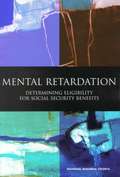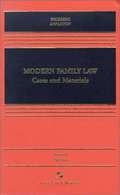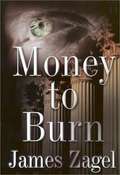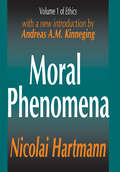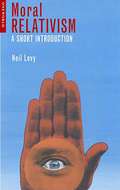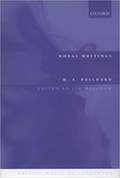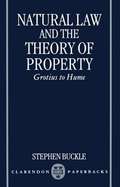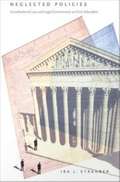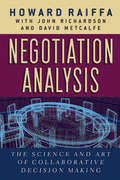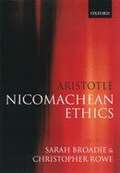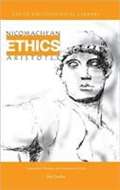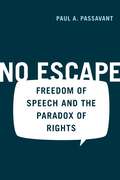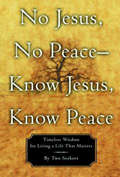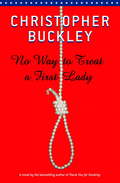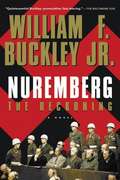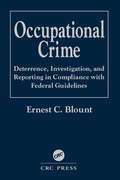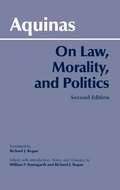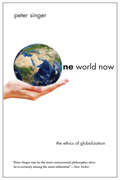- Table View
- List View
Mental Retardation: Determining Eligibility For Social Security Benefits
by Committee on Disability Determination for Mental RetardationCurrent estimates suggest that between one and three percent of people living in the United States will receive a diagnosis of mental retardation. Mental retardation, a condition characterized by deficits in intellectual capabilities and adaptive behavior, can be particularly hard to diagnose in the mild range of the disability. The U.S. Social Security Administration (SSA) provides income support and medical benefits to individuals with cognitive limitations who experience significant problems in their ability to perform work and may therefore be in need of governmental support. Addressing the concern that SSA’s current procedures are consistent with current scientific and professional practices, this book evaluates the process used by SSA to determine eligibility for these benefits. It examines the adequacy of the SSA definition of mental retardation and its current procedures for assessing intellectual capabilities, discusses adaptive behavior and its assessment, advises on ways to combine intellectual and adaptive assessment to provide a complete profile of an individual's capabilities, and clarifies ways to differentiate mental retardation from other conditions.
Modern Family Law: Cases and Materials 2nd edition
by D. Kelly Weisberg Susan Frelich Appletonnone.
Moral Imperialism: A Critical Anthology
by Hern�ndez-TruyolIn the controversy over female genital mutilation, Congress was quick to condemn practices throughout Africa and the Middle East and to take action criminalizing the practice domestically. Yet at the same time, it bluntly dismissed Amnesty International and Human Rights Watch when they pointed out human rights violations closer to home in the form of the disproportionately high rate of the imposition of capital punishment on black men, and the disempowerment of poor women under new draconian welfare rules. The irony of the United States' international condemnation of types of activities in which it engages within its own borders is not lost on Third World critics. Moral Imperialism sets out to bring an international human rights framework to the analysis of current international and domestic legal, political, and cultural crises. It explores the United States' moral supremacy during a time of clear domestic shortcomings and asks whether insisting that other nations adhere to norms that derive from dominant U. S. culture and history may harm societies--both within and outside of the U. S. --with radically different cultures and histories. Contributors: Beverly Greene, Kevin Johnson, M. Patricia Fernandez Kelly, Holly Maguigan, Boaventura De Sousa Santos, Saskia Sassen, and Eric Yamamoto.
Moral Phenomena
by Nicolai HartmannSince the nineteenth century, moral philosophy in the Western world has been dominated by utilitarianism, Kantianism, and relativism. Only a few philosophers have been able to escape from this Procrustean bed. Foremost among these few is Nicolai Hartmann (1882-1950). Together with Henri Bergson and Martin Heidegger, Hartmann was instrumental in restoring metaphysics. Hartmann's metaphysics differs markedly from that of both Bergson and Heidegger, in his indebtedness to Plato.In 1926, Hartmann published a massive treatise, Ethik, which was translated into English by Stanton Coit and published as Ethics in 1932. Ethics is probably the most outstanding treatise on moral philosophy in the twentieth century. The central concept of the book is ""value."" Drawing upon the pre-modern view of ethics, Hartmann maintains that values are objectively given, part and parcel of the order of being. We cannot invent values, we can merely discover them.The first part of Ethics is concerned with the structure of ethical phenomena and criticizes utilitarianism, Kantianism, and relativism as misleading approaches. After some introductory thoughts concerning the competence of practical philosophy, Hartmann discusses the essence of moral values, including their absoluteness and ideal being, and the essence of the ""ought."" Hartmann is both controversial and compelling. He provides a moral philosophy that rejects the subjectivism of the ruling approaches, without taking recourse to older theological notions on the foundation of the ethical. In sum: Hartmann's Ethics constitutes an impressive and preeminent contribution to moral philosophy.
Moral Politics: How Liberals and Conservatives Think (2nd edition)
by George LakoffIn this classic text, the first full-scale application of cognitive science to politics, George Lakoff analyzes the unconscious and rhetorical worldviews of liberals and conservatives, discovering radically different but remarkably consistent conceptions of morality on both the left and right. For this new edition, Lakoff adds a preface and an afterword extending his observations to major ideological conflicts since the book's original publication, from the impeachment of Bill Clinton to the 2000 presidential election and its aftermath.
Moral Relativism: A Short Introduction
by Neil LevyThis enlightening new introduction examines the history and development of moral relativism, considering the arguments for and against, and also covering such key topics as terrorism, and the rights of women in oppressive cultures.
Moral Writings
by H. A. Prichard Jim MacAdamThis is the definitive collection of the ethical work of the great Oxford moral philosopher H. A. Prichard (1871-1947). Prichard is famous for his ethical intuitionism: he argued that moral obligation cannot be reduced to anything else, but is perceived by direct intuition. The essays previously included in the posthumous collection Moral Obligation are now augmented by a selection of previously unpublished writings from Prichard's manuscripts, allowing for the first time a full view of his distinctive contribution to moral philosophy, at just the time when intuitionism is enjoying a revival of interest.
Natural Law and the Theory of Property: Grotius to Hume
by Stephen BuckleIn this book, Stephen Buckle provides a historical perspective on the political philosophies of Locke and Hume, arguing that there are continuities in the development of seventeenth- and eighteenth-century political theory which have often gone unrecognized. He begins with a detailed exposition of Grotius's and Pufendorf's modern natural law theory, focusing on their accounts of the nature of natural law, human sociability, the development of forms of property, and the question of slavery. He then shows that Locke's political theory takes up and develops these basic themes of natural law. Buckle argues further that, rather than being a departure from this tradition, the moral sense theory of Hutcheson and Hume represents an attempt--which is not entirely successful--to underpin the natural law theory with an adequate moral psychology.
Nazi Hunter: The Wiesenthal File
by Alan LevySimon Wiesenthal spent four and a half years in Mauthausen concentration camp during World War II. With the exception of his wife, all his immediate family were exterminated, and he himself ended the war a living skeleton. Since then, he has achieved international reknown for his tireless and successful tracking down of Nazi war criminals, including notorious figures such as Eichmann, the 'desk murderer' who masterminded Hitler's Final Solution; Stangl the overlord of Treblinka; and the Mengele of Auschwitz, the dreaded 'Angel of Death'. To this day his work continues, his motivation simply expressed in the words: 'Justice, not vengeance'. This work provides an account of Wiesenthal's inspired detective work.
Nazi Hunter: The Wiesenthal File
by Alan LevySimon Wiesenthal spent four and a half years in Mauthausen concentration camp during World War II. With the exception of his wife, all his immediate family were exterminated, and he himself ended the war a living skeleton. Since then, he has achieved international reknown for his tireless and successful tracking down of Nazi war criminals, including notorious figures such as Eichmann, the 'desk murderer' who masterminded Hitler's Final Solution; Stangl the overlord of Treblinka; and the Mengele of Auschwitz, the dreaded 'Angel of Death'. To this day his work continues, his motivation simply expressed in the words: 'Justice, not vengeance'. This work provides an account of Wiesenthal's inspired detective work.
Neglected Policies: Constitutional Law and Legal Commentary as Civic Education
by Ira L. StrauberIn Neglected Policies, Ira L. Strauber challenges scholars and critics of constitutional jurisprudence to think differently about the Constitution and its interpretation. He argues that important aspects of law, policies, and politics are neglected because legal formalisms, philosophical theories, the reasoning of litigators and judges, and even the role of the courts are too often taken for granted. Strauber advocates an alternative approach to thinking about the legal and moral abstractions ordinarily used in constitutional decision making. His approach, which he calls "agnostic skepticism," interrogates all received jurisprudential notions, abandoning the search for "right answers" to legal questions. It demands that attention be paid to the context-specific, circumstantial social facts relevant to given controversies and requires a habit of mind at home with relativism. Strauber situates agnostic skepticism within contemporary legal thought, explaining how it draws upon sociological jurisprudence, legal realism, and critical legal studies. Through studies of cases involving pornography, adoption custody battles, flag burning, federalism, and environmental politics, he demonstrates how agnostic skepticism applies to constitutional issues. Strauber contends that training in skeptical critique will enable a new kind of civic education and culture--one in which citizens are increasingly tolerant of the ambiguities and contradictions inherent in the law and politics of a pluralistic society. Using insights from the social sciences to examine the ways constitutional cases are studied and taught, Neglected Policies will interest scholars of jurisprudence, political science, and the sociology of law.
Negotiation Analysis: The Science and Art of Collaborative Decision Making
by Howard RaiffaThis masterly book substantially extends Howard Raiffa’s earlier classic, The Art and Science of Negotiation. It does so by incorporating three additional supporting strands of inquiry: individual decision analysis, judgmental decision making, and game theory. Each strand is introduced and used in analyzing negotiations. The book starts by considering how analytically minded parties can generate joint gains and distribute them equitably by negotiating with full, open, truthful exchanges. The book then examines models that disengage step by step from that ideal. It also shows how a neutral outsider (intervenor) can help all negotiators by providing joint, neutral analysis of their problem. Although analytical in its approach—building from simple hypothetical examples—the book can be understood by those with only a high school background in mathematics. It therefore will have a broad relevance for both the theory and practice of negotiation analysis as it is applied to disputes that range from those between family members, business partners, and business competitors to those involving labor and management, environmentalists and developers, and nations.
New Killing Fields: Massacre and the Politics of Intervention
by Nicolaus Mills Kira BrunnerThe question of the responsibility inherent in the unrivaled might of the U.S. military is one that continues to take up headlines across the globe. This award-winning group of reporters and scholars, including, among others, David Rieff, Peter Maass, Philip Gourevitch, William Shawcross, George Packer, Bill Berkeley and Samantha Power revisit four of the worst instances of state-sponsored killing--Cambodia, Yugoslavia, Rwanda, and East Timor--in the last half of the twentieth century in order to reconsider the success and failure of U.S. and U.N. military and humanitarian intervention.Featuring original essays and reporting, The New Killing Fields poses vital questions about the future of peacekeeping in the next century. In addition, theoretical essays by Michael Walzer and Michael Ignatieff frame the issue of intervention in terms of today's post-cold war reality and the future of human rights.
Nicomachean Ethics
by Aristotle Christopher Rowe Sarah BroadieThis work presents the Nicomachean Ethics in a fresh English translation by Christopher Rowe that strives to be meticulously accurate yet also accessible. The translation is accompanied by Sarah Broadie's detailed line-by-line commentary, which brings out the subtlety of Aristotle's thought as it develops from moment to moment. In addition, a substantial introductory section features a thorough examination of the text's main themes and interpretative problems and also provides preambles to each of the ten books of the Nicomachean Ethics. An indispensable resource for students approaching the Nicomachean Ethics for the first time, this detailed treatment is ideal for courses in classical or ancient philosophy, the philosophy of Aristotle, and ethics.
Nicomachean Ethics: Translation, Glossary, and Introductory Essay
by Aristotle Terence Irwin Joe SachsFocus Philosophical Library's edition of Aristotle's Nicomachean Ethics is a lucid and useful translation of one of Aristotle's major works for the student of undergraduate philosophy, as well as for the general reader interested in the major works of western civilization. This edition includes notes and a glossary, intending to provide the reader with some sense of the terms and the concepts as they were understood by Aristotle's immediate audience. Focus Philosophical Library books are distinguished by their commitment to faithful, clear, and consistent translations of texts and the rich world part and parcel of those texts.
No Escape: Freedom of Speech and the Paradox of Rights
by Paul PassavantConventional legal and political scholarship places liberalism, which promotes and defends individual legal rights, in direct opposition to communitarianism, which focuses on the greater good of the social group. According to this mode of thought, liberals value legal rights for precisely the same reason that communitarians seek to limit their scope: they privilege the individual over the community. However, could it be that liberalism is not antithetical to social group identities like nationalism as is traditionally understood? Is it possible that those who assert liberal rights might even strengthen aspects of nationalism? No Escape argues that this is exactly the case, beginning with the observation that, paradoxical as it might seem, liberalism and nationalism have historically coincided in the United States. No Escape proves that liberal government and nationalism can mutually reinforce each other, taking as its example a preeminent and seemingly universal liberal legal right, freedom of speech, and illustrating how it can function in a way that actually reproduces nationally exclusive conditions of power. No Escape boldly re-evaluates the relationship between liberal rights and the community at a time when the call has gone out for the nation to defend the freedom to live our way of life. Passavant challenges us to reconsider traditional modes of thought, providing a fresh perspective on seemingly intransigent political and legal debates.
No Jesus, No Peace-- Know Jesus, Know Peace: Timeless Wisdom forLiving a Life That Matters
by Two SeekersNo caring, no peace. Know caring, know peace ... Never before has Jesus' wisdom felt so relevant, insightful, and applicable as in this surprising volume. Offered here are twenty-two nuggets of wisdom that will move you, guide you, and nourish your daily life. Intended as an indispensable manual, this book will help point you to true north and inner peace. Its authors, who call themselves simply "two seekers," mastered their problems only after absorbing the lessons contained in these pages. By combining pithy insight with practical how-to examples, they demonstrate -- even to committed skeptics -- why saying "no" to Jesus' teachings could be saying "no" to the kind of self-knowledge that enables one to change not only his or her own life but those of others.
No Way To Treat a First Lady: A Novel
by Christopher BuckleyA New York Times Notable Book of the YearElizabeth Tyler MacMann, the ambitious First Lady of the United States (and known in the tabloids as "Lady Bethmac"), is on trial for the death of her philandering husband, and the only man who can save her is the boyfriend she jilted in law school--now the most shameless defense attorney in America. Published to rave reviews, No Way to Treat a First Lady is a hilariously warped love story for our time set in the funniest place in America: Washington, D.C.
Nuremberg: The Reckoning
by William F. Buckley Jr.Sebastian Reinhardt, a young German-American, is yanked from routine army duty in America to serve as an interpreter at Nuremberg's Palace of Justice in 1945. He hears the stories of the infamous Nazi killers and war makers, who face prosecutors determined to bring them to justice, and encounters the towering figures of twentieth-century legal, political, and military history, among them Justice Robert Jackson, Albert Speer, Hermann Goering, and the dark, untried shadow of Adolf Hitler. As the trial unfolds, Sebastian must come to terms with his family legacy and national identity. With his renowned authority and audacity, William F. Buckley Jr. creates a riveting thriller, taking the reader through unforgettable scenes of treachery and vengeance, love and hatred, and the struggle for justice found in a hangman's noose.
Occupational Crime: Deterrence, Investigation, and Reporting in Compliance with Federal Guidelines
by Ernest C. BlountDID YOU KNOW? While organizational entities cannot be sent to prison, they can be heavily fined, ordered to make restitution, placed on probation, forced to forfeit property, suffer public and stakeholder recriminations, and can be forced out of business. Avoid these unnecessary repercussions with Occupational Crime: Deterrence, Investigatio
On Law, Morality, and Politics (Second Edition)
by Thomas Aquinas Richard J. Regan William P. BaumgarthRetaining the selection of texts presented in the first edition, this second edition offers new translations by Richard J Regan -- including that of his Aquinas, Treatise on Law (Hackett, 2000). A revised Introduction and glossary, an updated select bibliography, and the inclusion of summarising headnotes for each of the units -- Conscience, Law, Justice, Property, War and Killing, Obedience and Rebellion, and Practical Wisdom and Statecraft -- further enhance its usefulness.
On Law, Politics, and Judicialization
by Martin Shapiro Alec Stone-SweetAcross the globe, the domain of the litigator and the judge has radically expanded, making it increasingly difficult for those who study comparative and international politics, public policy and regulation, or the evolution of new modes of governance to avoid encountering a great deal of law and courts. In On Law, Politics, and Judicialization, two of the world's leading political scientists present the best of their research, focusing on how to build and test a social science of law and courts. Chosen empirical settings include the United States, the GATT-WTO, France and Germany, Imperial China and Islam, the European Union, and the transnational world of the Lex Mercatoria.
One World Now: The Ethics of Globalization
by Peter SingerOne World Now seamlessly integrates major developments of the past decade into Peter Singer's classic text on the ethics of globalization, One World. Singer, often described as the world's most influential philosopher, here addresses such essential concerns as climate change, economic globalization, foreign aid, human rights, immigration, and the responsibility to protect people from genocide and crimes against humanity, whatever country they may be in. Every issue is considered from an ethical perspective. This thoughtful and important study poses bold challenges to narrow nationalistic views and offers valuable alternatives to the state-centric approach that continues to dominate ethics and international theory. Singer argues powerfully that we cannot solve the world's problems at a national level, and shows how we should build on developments that are already transcending national differences. This is an instructive and necessary work that confronts head-on both the perils and the potentials inherent in globalization.
